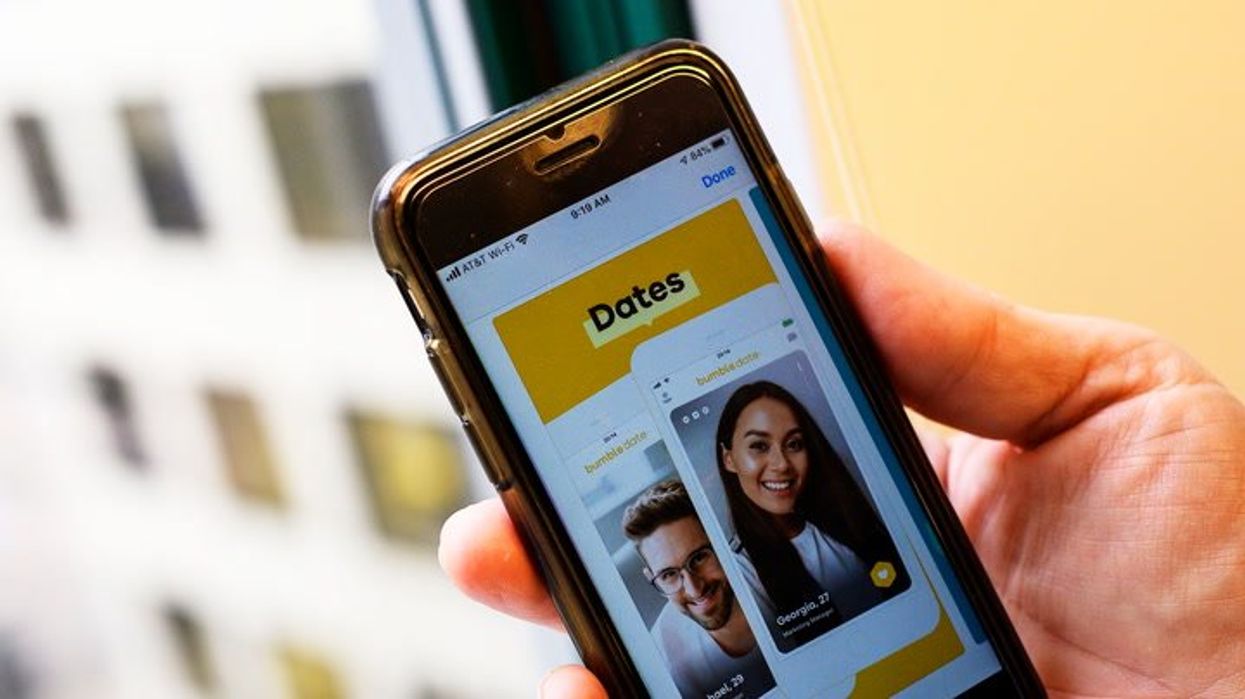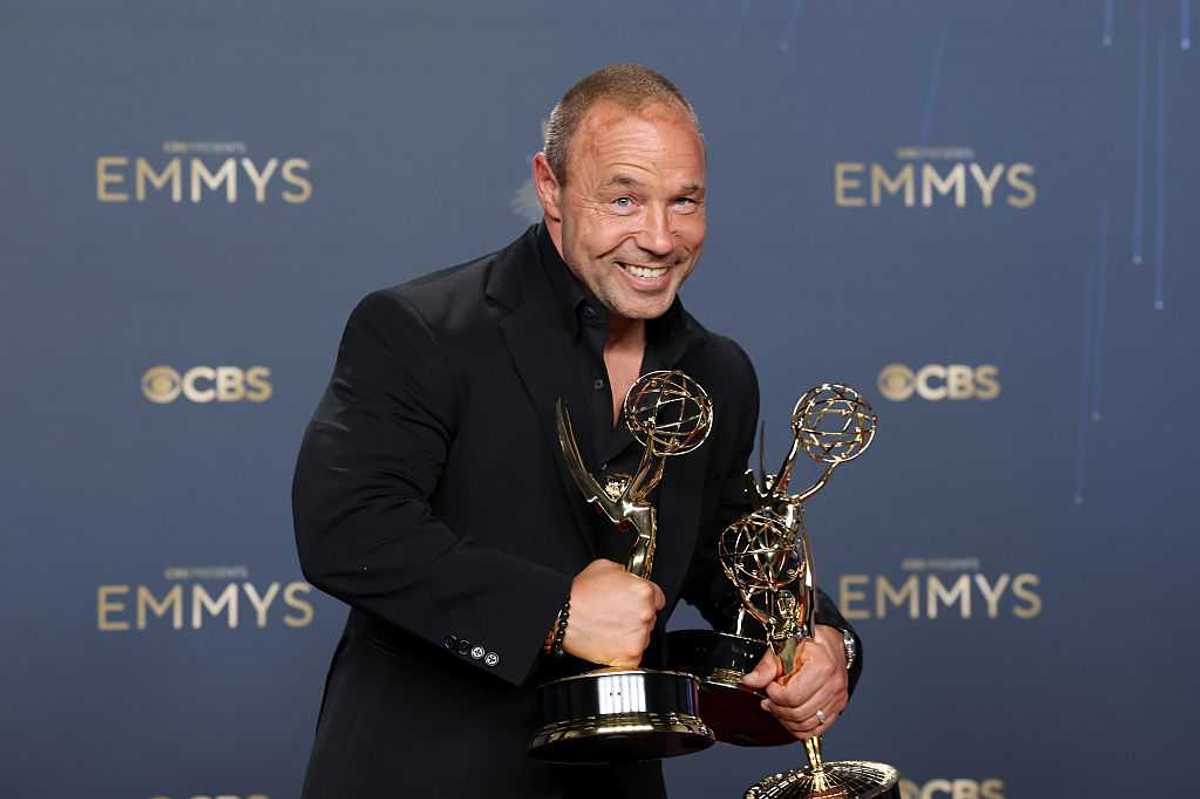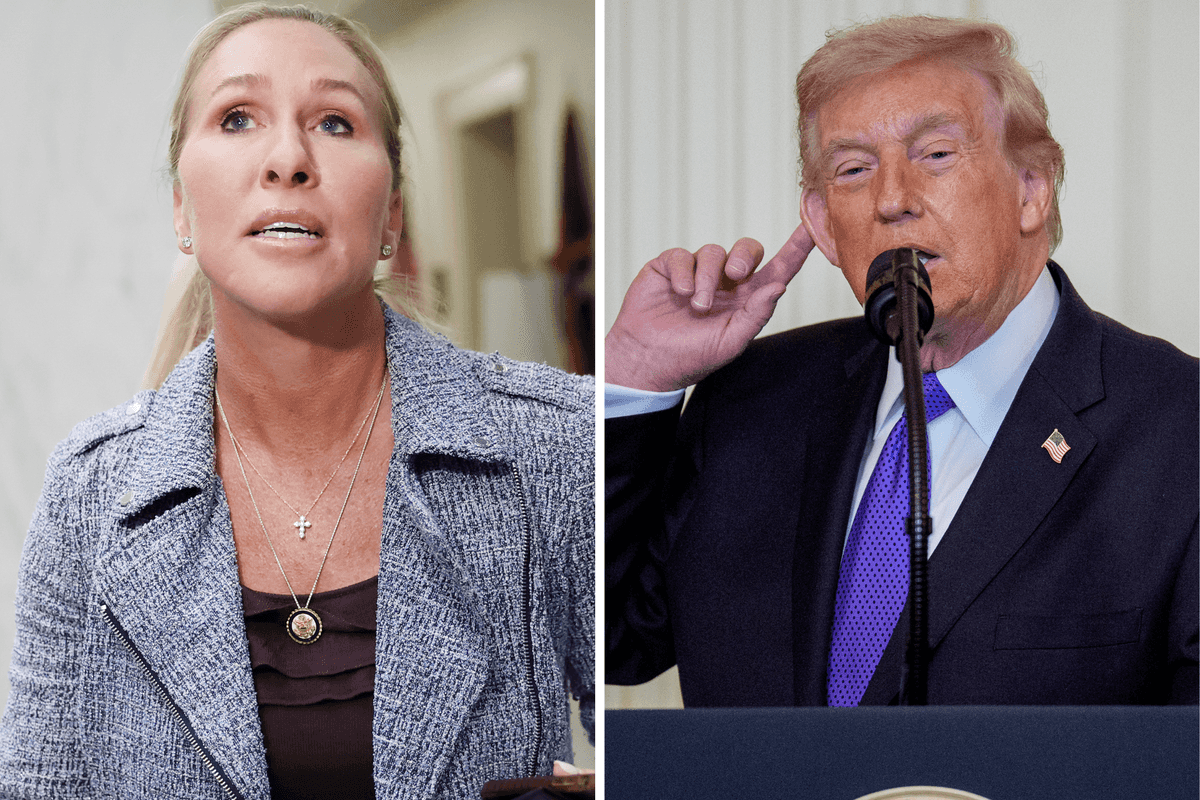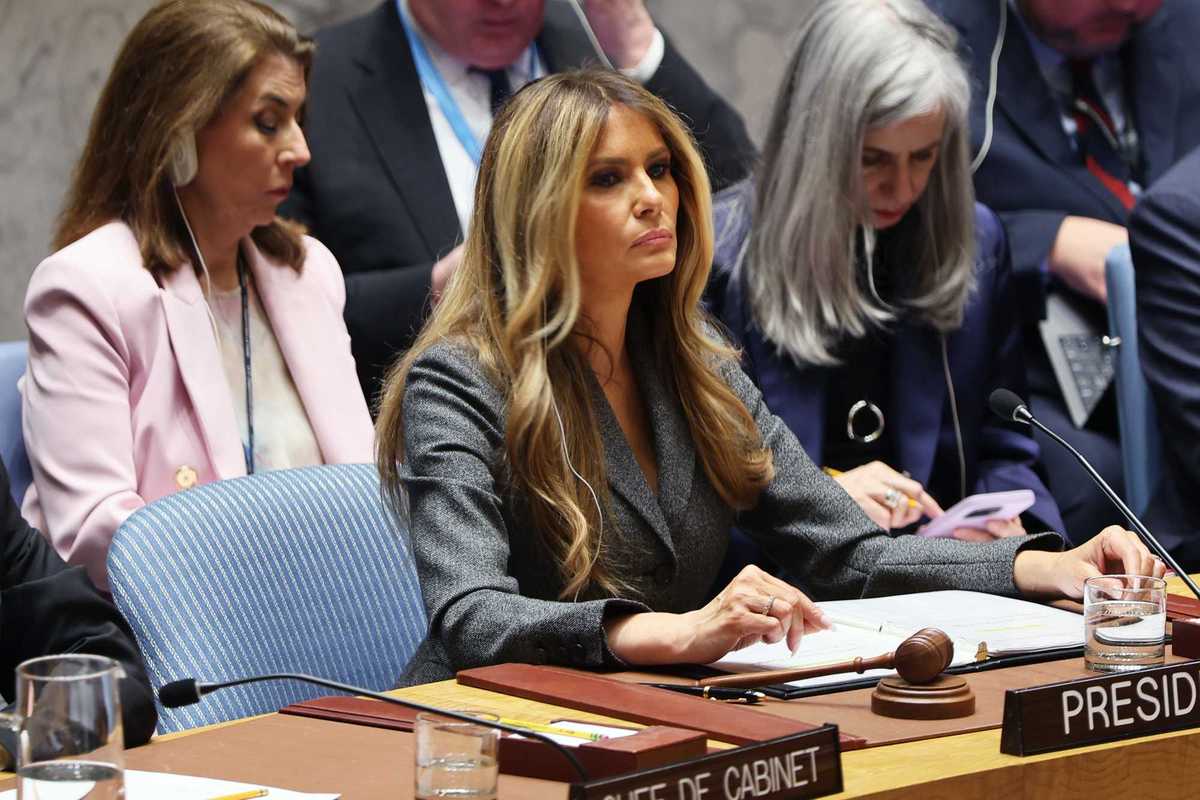As 2024 is just around the corner, Bumble, the women-first dating app, has given an insight into what dating trends we can expect to arise in the next year.
The popular dating app has garnered insights from more than 25,000 singles on Bumble around the world to identify trends that will define dating and relationships in the year to come.
During the course of 2023, we’ve seen fandoms reach new heights, lived through the summer of ‘girlhood’, seen men embrace their inner ‘Ken-ergy’, and witnessed iconic women driving the economy through their creativity.
From navigating love abroad with Wanderlove, to dating beyond your type with Open-casting and establishing new boundaries with our partners, our work lives and our finances, these are just some of the dating trends that emerged in 2023.
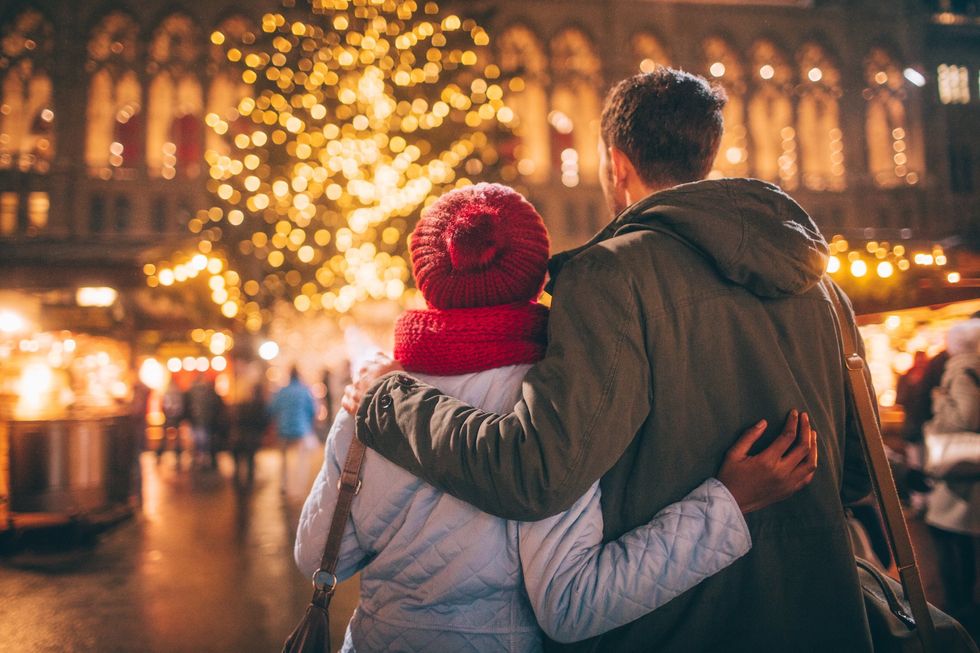
Looking ahead, 2024 is set to be the year of “self” in dating and relationships with more people looking inwards at what they value and want.
This personal prioritisation sees singles rejecting the constant strive for perfection, discarding outdated timelines, challenging ‘jobification’, and placing more value on emotional vulnerability, self-acceptance, and shared priorities.
Heading into 2024, there is an air of optimism and clarity for the ‘year of self’ as Bumble’s research shows that more than half (57 per cent) of women surveyed are going into the new year with a clear view of what they want from their romantic lives.
Here is a rundown of Bumble’s dating trend predictions as well as informative insights from Bumble's Sex and Relationships Expert, Dr Caroline West who spoke to indy100 about why we're seeing a rise in these trends.
Gen(erational)-Blend Romance
Building on dating beyond your ‘type’, there has been an increase in cross-generational relationships (think Shakira and Jimmy and Zoë and Channing).
Singles on Bumble are increasingly open to connections both older and younger.
For two in three (63 per cent) people, age is not a defining factor when dating with more than half (59 per cent) of women saying they are now more open to dating someone younger than them.
This is especially true for the UK, with nearly two-thirds (61 per cent) of British women claiming this.
The way we view others’ relationships are also changing with more than one in three (35 per cent) women on Bumble stating they have become less judgemental towards generational-gap relationships over the last year.
Dr Caroline West told Indy100: "It's really interesting to see this as a development coming forward because I think it means that people are dating outside of a very strict type before that they might have had before so they might have said, 'Oh, you know, I only like tall, dark and handsome' or whatever it happens to be.
"Then when you tear up that rulebook, and allow yourself to date people that you may not have dated before you can have new experiences and actually find someone who is right for you, rather than someone trying to fit this tiny little box that you may have put them in before."
Val-Core Dating
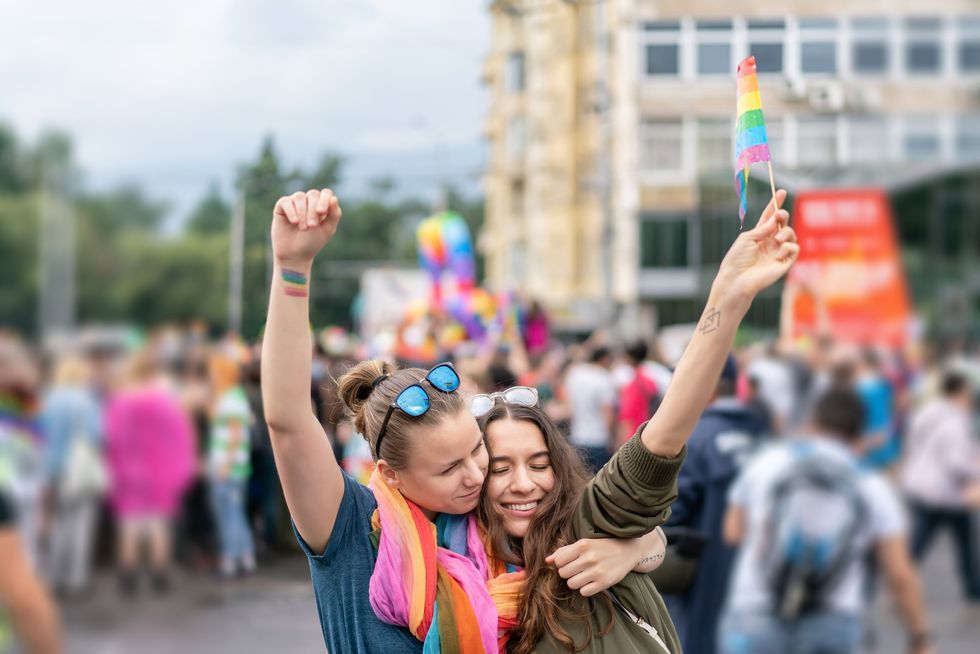
Singles today are looking for shared priorities and it’s no longer enough to simply care.
Val-Core refers to the rise of people valuing engagement on issues that matter to them.
For one in four (25 per cent) people on Bumble it is key that their partner actively engages with politics and social causes, in fact it makes them more attractive.
When it comes to dating, Bumble’s research shows that women are less open to someone with differing political views and for one in three (33 per cent) women it is a turn-off if someone they are dating is not aware of current societal issues.
"There's lots of different causes that we can be passionate about. That comes down to that emotional intimacy and authenticity of caring about people other than just yourself and your own life," Dr Caroline said on Val-Core Dating.
"You want someone who's working towards building a better world. Maybe that's someone active in climate change or a building consent culture, or making a better world for people with disabilities.
She added: "People are really interested in seeing that because that comes across as kindness and compassion for other people and wanting to build a better world and I think that's really attractive for a lot of people.
"It's not just [political] opinions necessarily, it boils down to how we treat other people around us."
Betterment Burnout
From ‘5am til 9am’ routines trending on social, to plugging into self-help podcasts, there has been a rise in people ‘self-optimising’ - striving to become a perfect version of themselves.
This has led the majority of singles globally (55 per cent) to feel pressure to constantly look for ways to better themselves, leaving over one in four (27 per cent) people in the UK feeling unworthy of a partner.
Looking ahead to 2024, singles are rebelling against the constant self-improvement with more than two in three women surveyed (68 per cent) taking active steps to be happier with who they are here and now - playing into the recent ‘soft girl’ trend which sees women step away from hustle culture in favour of a slower and balanced lifestyle.
Plus, 40 per cent of women will now only date people who will not try to change them.
Dr Caroline commented: "People have really rejigged their priorities in life as a whole, not just in dating since the pandemic. So I think it's really great that people are rejecting that pressure, and they're saying 'I'm okay, we're who I am now'."
"We see this in the rise of body acceptance, making peace with your body as opposed to body positivity. People are just accepting who they are and where they are, and feeling worthy in themselves as they are. So I think that's really positive."
"That's going into soft girl season, which I'm absolutely obsessed with. This is the idea of taking things at your pace at your time. It doesn't matter where everyone else is."
She added: "It doesn't matter what society says you should do, or what you should look like or what a good person is. It's all about what works for you and your level. So rejecting all those stereotypes and social norms, and figuring out where you are yourself in life."
Intuitive Intimacy
For people today, and particularly women, it seems attraction comes down to one key thing: emotional intimacy.
Singles are focused on finding security, safety, and understanding, with a third (32 per cent) of people surveyed on Bumble believing that emotional intimacy is now more important than sex and that it’s actually more attractive than physical connection.
When it comes to dating, more than three in four UK women (80 per cent) say it’s key that their partner has an understanding of both emotional and physical intimacy. In 2024, it’s time to get in your feels.
"Sex is great and orgasms are great, but it's that emotional intimacy that really sustains a relationship and turns into a long-term relationship," Dr Caroline said.
"How do you get on? How do you communicate? How do you work together as a team? How do you solve issues that come up? How do you fix things if things go wrong? If you hurt your partner, how do you apologise?
"So I think all of that is just really, important and it's so fantastic that people are putting that emphasis on that emotional intimacy."
"The pillow talk afterwards can be just as sweet as the actual sex as well," she noted.
Open-Hearted Masculinity

The year has been filled with global conversations about masculinity and gender roles in fashion, media, music, and film (Ken-ergy, anyone?).
When it comes to relationships, one in four (25 per cent) men state that they have actively changed their behaviour, becoming more vulnerable and open with people they are dating than ever before.
For a quarter of men (25 per cent) this new-found openness has had a positive impact on their mental health and for one in three (32 per cent) a lack of vulnerability is now a dating deal breaker.
"I think it's important to see that men are talking about their emotions and their feelings - we know men are very vulnerable to a lot of mental health issues, but feeling like they can't talk about it can make things worse," Dr Caroline explained.
"It's really positive that we now are in a society where men are very welcome to talk about what's going on for them and to be vulnerable and open. I think that's really attractive for a lot of people. It goes back to looking for that emotional intimacy."
"We have role models now - people like Harry Styles, who talks about kindness and is comfortable in his masculinity, whatever that looks like for him. We also have people like Pedro Pascal, and he talks about feeling anxious on the red carpet and the kind of social causes that he gets involved in.
"There are great role models out there for men and I think that we're a lot more open to talking about things like toxic masculinity and how patriarchy actually really harms men," she concluded.
Timeline Decline
People, especially women, continue to feel a constant pressure to follow traditional relationship timelines.
Into 2024, we’re seeing the decline of timelines in favour of women choosing to actively build their own path, with one in three (31 per cent) women saying they are no longer focused on adhering to traditional timelines and milestones.
For nearly a third (31 per cent) of women globally, this means only dating people who have the same perspective on timelines and milestones. And for one in eight (16 per cent) this means actively avoiding friends and family who put pressure on them.
"It comes back to that authenticity and the prioritisation of the self," Dr Caroline noted.
"So, if you're not feeling ready by kids by whatever age but all your friends are, that's okay. You don't have to go along with that timeline just because other people in your life are doing it."
"The pandemic has really reset a lot of people and they think 'I can work from home' or' I can move to Thailand and work in the US' or have all these different options available to them that weren't there before.
"There's a lot more opportunity to live life on your terms and that doesn't mean just because your parents did something or your grandparents something doesn't mean that you have to follow in those same footsteps."
MVP (Most Valuable Partner)

With a new wave of women tennis stars, a constant stream of sports documentaries, and a global competition next summer, sports is set to take a front seat in dating - or maybe we’re just all after our own Jess and Alex love story?
For one in three (31 per cent) singles, a shared love of sports has now become a ‘must have’ regardless of if you’re a player or simply a spectator.
Our obsession with sports is also changing how we date with a quarter of people (24 per cent) stating that attending sports together is important, particularly amongst Gen-Z and Millennial singles.
In the UK, more than half (53 per cent) of profiles on Bumble include a sports interest badge and the top athletics include: football, boxing and rugby.
"Having a shared interest like sport or rugby or hockey, whatever it happens to be. I think that's really nice that you can do that together," Dr Caroline said.
"You can spend your Saturdays doing something that you really want to do... those shared activities and shared hobbies are really important that sport can be so exhilarating, you know whether if you're on the same team and celebrating your highs or you're having a little friendly rivalry between you and you know, it can be something that really bonds people so it's great to see it's a way to bring couples closer together.
"To see women's sports being such a central part of that is such a lovely thing to see, you know, develop in our society that women's sports are just as valuable as male sports."
Consider-date
This year’s prioritisation of self-care and mental health has led to more than half (58 per cent) of singles being more open about their mental health and making a concerted effort to slow down.
Single people are reframing how they date to better protect their mental health, with almost one in three (31 per cent) actively ‘slow-dating’ and being considerate about how much they are dating to ensure quality over quantity, even more so amongst women.
In fact, more than one in three (36 per cent) of women are actively seeking people who value both time and self-care.
This is bringing back a trend that Bumble identified in the pandemic in a new way challenging the “job-ification” of love with more than one in four (29 per cent) people in the UK actively deterred by anyone who treats a date as a checklist exercise.
Naomi Walkland, Bumble’s Vice-President for Europe said: In 2023, we identified trends on love abroad, new boundaries, and a more open approach to typecasting. Intertwined with our dating lives, we saw societal conversations on misogyny, women’s rights, and social issues that left many exhausted.
"In our research, we’ve seen that these cultural conversations have impacted the way that people on Bumble are dating - empowering their sense of self and seeking people who value what’s also important to them, whether it’s social causes, lifestyles or just their favourite sports team.
"We’ve also seen that singles are increasingly looking inwards, unpacking expectations around age, perfection, and timelines, and seeking people that are more vulnerable and accepting of who they are. 2024 will bring a year of self, with people more empowered than ever to prioritise what they value and what they will not stand for, leading to a new clarity about what they want in their romantic lives.”
Dr Caroline said: "It's not a numbers game necessarily. It's not about quantity.
"You might have thought, 'Oh, this is great. I'm going on seven dates this week', but you might just be burnt out after seven days for people who are not ready for you.
"So taking the time, and embracing slow dating of thinking 'do I really like this person? Do I really want to go out on that date with them? Are we on the same page? Do we have the same values we have, you know, are we both looking for the same thing?'"
She added: "It's seeing people you know, as as fully human, and as opposed to 'they'll tick the box', or 'I have to put myself out there,' so people are being a lot more considered and paying attention to their own boundaries, their own wants and needs and the values that they bring and that they're looking for... people are prioritising what works for them."
To empower singles to make the most of 2024, Bumble has launched new features including Best Bees, a curated daily set of four compatible profiles to help you find more relevant connections faster. See someone who also shares your passion for sports or sustainability? You can send a message with the Compliments feature.
How to join the indy100's free WhatsApp channel
Sign up to our free Indy100 weekly newsletter
Have your say in our news democracy. Click the upvote icon at the top of the page to help raise this article through the indy100 rankings.
